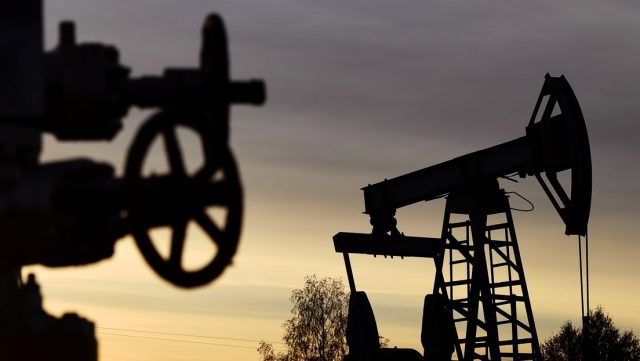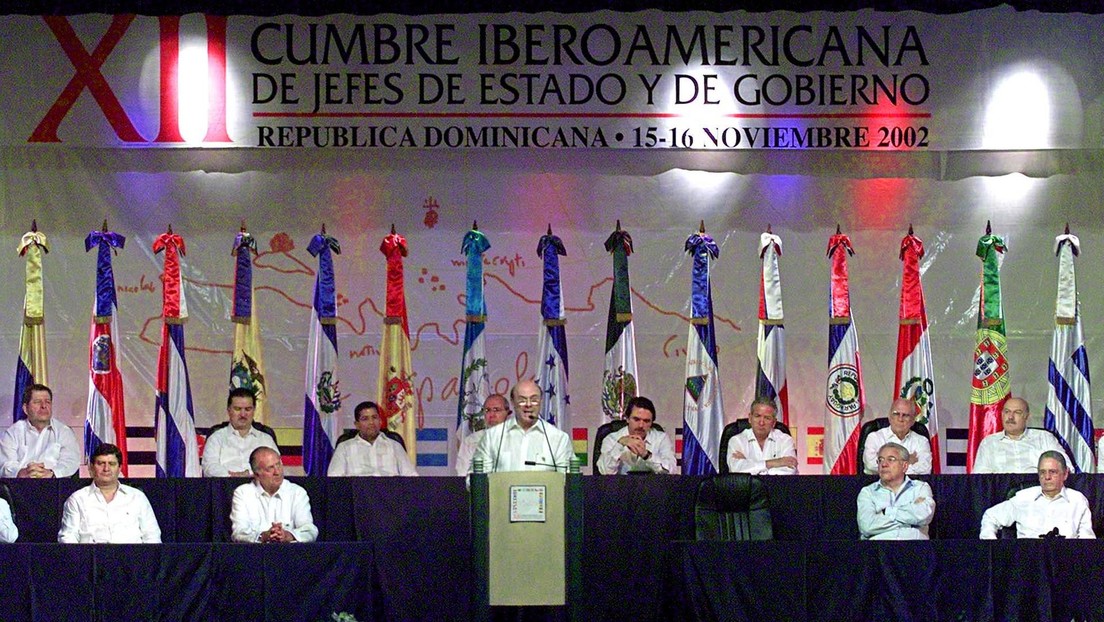The Venezuelan government has begun to offer, on the country’s stock exchanges, from 5% to 10% of the shares of State and mixed companies linked to the telecommunications, mining, gas, oil and its derivatives sectors, and of the State’s banks.
The «first step» —received «with enthusiasm» by the Caracas stock market— was unexpectedly taken by the Bank of Venezuela, which, in a statement highlighted that it had become the first State-owned company to list its shares on the stock market, offering «progressively» their «social capital». The institution, which has more than 15 million clients, is a leader in the credit portfolio of the Venezuelan financial market and its offer draws attention because it had not been mentioned by the president, Nicolás Maduro.
When Maduro made the announcement, he explained that the measure came into effect on May 16 and it seeks that private investors -national and foreign- begin to inject resources into companies such as the National Telephone Company of Venezuela (Cantv), its subsidiary of mobile telephony Movilnet, the Petrochemical of Venezuela (Pequiven), the mixed companies of the oil and gas sector, and the basic industries of Guayana, which are fundamentally dedicated to the exploitation of mining resources.
This action – the Government points out – takes place in a context of «economic recovery», which after ending a hyperinflationary cycle, which profoundly marked the years between 2015 and 2020, has managed to control inflation to less than 10 percentage points for 8 consecutive months, the value and use of the local currency —the bolivar— has stabilized and the de facto dollarization experienced by the country has been curbed.
Maduro also indicated that the strategy is based on the «expansion of the shareholding package» of public companies —which will remain in majority hands of the State—, with the purpose of developing them, improving their technology and finding new markets. He also commented that the measure has been in preparation since 2021, based on the work carried out by an interdisciplinary team and that it has «first-rate international support from universities, academies and experts».
«We know what we are doing, why we are doing it and where we are going», said the president, after considering that economic growth must be based on the «expansion of the productive forces» and «of the real economy, with exchange rate stability» to «generate wealth» that help «recover social, labor and salary rights».
“Very positive” for Venezuela
The Board of Directors of the Caracas Stock Exchange described the announcement as «very positive» and pointed out that in order to «arouse the interest of investors» and «achieve long-term projects», they must perceive that there are «efficient administrations», based on “guidelines that generate sustainability and self-management”.
The institution pointed out that the process cannot «forget the workers and officials of these companies that will make, or expand, their public offer, as recipients of social programs through plans for massive distribution of shares, turning them into owners and, therefore, they will be in constant oversight of its proper functioning, thus leading to the real democratization of capital».
It also specified that the initiative helps «to strengthen the stock market», which has been «a long-standing request, which contributes to generating wealth and development for the country».
For his part, the president of the Bicentennial Public Stock Exchange, Rodolfo Medina, said in an interview with VTV that, despite the fact that at the time, no offers from public companies had been made in the stock market, only the announcement made by Maduro and «the expectation» caused, for example, the shares of Cantv to increase 342.20% in 13 days.
What do the experts think?
Charles Giuseppi, a Venezuelan political scientist with a master’s degree in International Economic Relations and university professor, told RT that in order to understand the strategy, it is necessary to «demystify the false theory that if a socialist State does not have control of a company, then it has failed; the same thing happens when a private, capitalist company has to take measures that imply a certain control on the part of State management”.
«The important thing is to get out of the polarization to be able to analyze the phenomenon, above all, taking into account that in all societies there is a greater or lesser control of the State. That is why, in this case, it is very important to get out of the ambiguities and remember that the sale of shares in no case exceeds 10%».
The expert adds that in the economic and social context in which the decision is made, care must be taken not to think that the sale of shares, and even the possibility of privatizing a State company, is carried out to the detriment of the proposals for «social change, State participation and the vindication of the policies that ex-president Hugo Chávez undertook».
“We have to be careful with that. This has been a wise position of the president, Nicolás Maduro, in trying to move towards a broader negotiation regarding the State ownership of certain public companies. In addition, it must be specified that in all the countries of the world there is participation of the private sector and that socialism is committed to the socialization of wealth and does not exclude the private sector, as it is tried to be made believed».
Giuseppi sees «very positive» that the background of the measure aims to improve «living conditions, wages and access to food for all Venezuelans». He also says that making the actions of oil and gas companies more flexible is something that conforms to international practice, since it is currently «very difficult» to find a country that owns the resources, extracts them and markets them.
«Saudi Arabia -explains the specialist- put up for sale, a few months ago, 5% of the shares of the State oil company Aramco, a successful company that for many years has been the one with the highest turnover in the world. Therefore, that the Venezuelan State decides to sell shares cannot be seen as a sacrilege, especially when this measure is necessary to rescue the industry, seriously affected by the years of economic blockade».
«Oxygenate the economy in Venezuela»
Giuseppi also explains that a key point of the measure is «to oxygenate the economy», since «the unprecedented situation of blockade and imposition of unilateral coercive sanctions, which have affected all sectors of the Venezuelan economy, wages, income , consumption, by directly attacking the economic heart of the country, which were the oil exports».
In his opinion, it is «a complementary measure, such as the relaxation of the exchange control that allowed the retail of foreign currency between public and private banks». In addition, he said that it, «pursues the reactivation of the economic apparatus, give it a break and definitively get out of the most difficult period of darkness that the country experienced for at least four years, from 2016 to 2020″.
Other similar actions – adds the expert – have been the private investments previously allowed in the oil industry, the concessions in the mining area, «among other adjustments that are already beginning to be felt in everyday life and are reflected in the end of hyperinflation».
“Surely the impact of this strategy will be positive, especially after the situation of paralysis, of economic sclerosis that began in 2016. Any measure that aims to oxygenate the economy, that is oriented in the direction of making income more flexible in foreign exchange, from foreign investment in a pragmatic way, is aimed at improving living conditions».
The measure also coincides with the new exceptions in the US sanctions against the Venezuelan oil industry. «This is not something new, since at least five US companies had obtained authorizations to operate in Venezuela during the Donald Trump administration». However – he says – it adds to the ‘bet’ of the Venezuelan State, since Washington’s permission to European oil companies to negotiate with Caracas, without reprisals, translates into higher income for the South American nation.
Building trust
The economist Ingerzon Freites, a member of the Venezuelan Observatory of Economic Reality, commented to RT that the government’s commitment is mainly aimed at «generating confidence» in foreign investors. “It is an honest and sensible measure, which mainly seeks to generate trust. It is a message that the government is giving to attract private investment, especially to investors who are outside the country”.
Freites adds that beyond the announcement, the government must try to comply with «certain characteristics» of «security and legal responsibility», so that the foreign investor feels attracted, «especially when 10% of the shares is a low percentage in a difficult economic context» and «with companies that have not generated profitability for years».
«The investor must evaluate many things and is very careful with his capital. They review all the juridical and legal issues, the payment of the country’s debt, the authorities, the institutional framework, because these are State-owned companies. It should also be taken into account if they are willing to buy a minority percentage and accept that the companies continue to be managed by government officials».
Freites adds that a possible condition that foreign investors could propose would be that public companies be managed by specialized personnel with experience in the sector in which they aspire to invest, since they would not trust that their resources are managed by people «who don’t have management skills».
The economist also said that the government’s bet can also be seen «in another way», as it could be the beginning of «a call to sell a large part of the shares» that began with the announcement of 10%.
“If this were the hypothesis and a situation of 60-40 in favor of private investment were reached, everything would change. The private investors would manage themselves as majority shareholders, they would be interested in placing a different management and they would promote strategies according to their interests, respecting the State vision», he assured.



